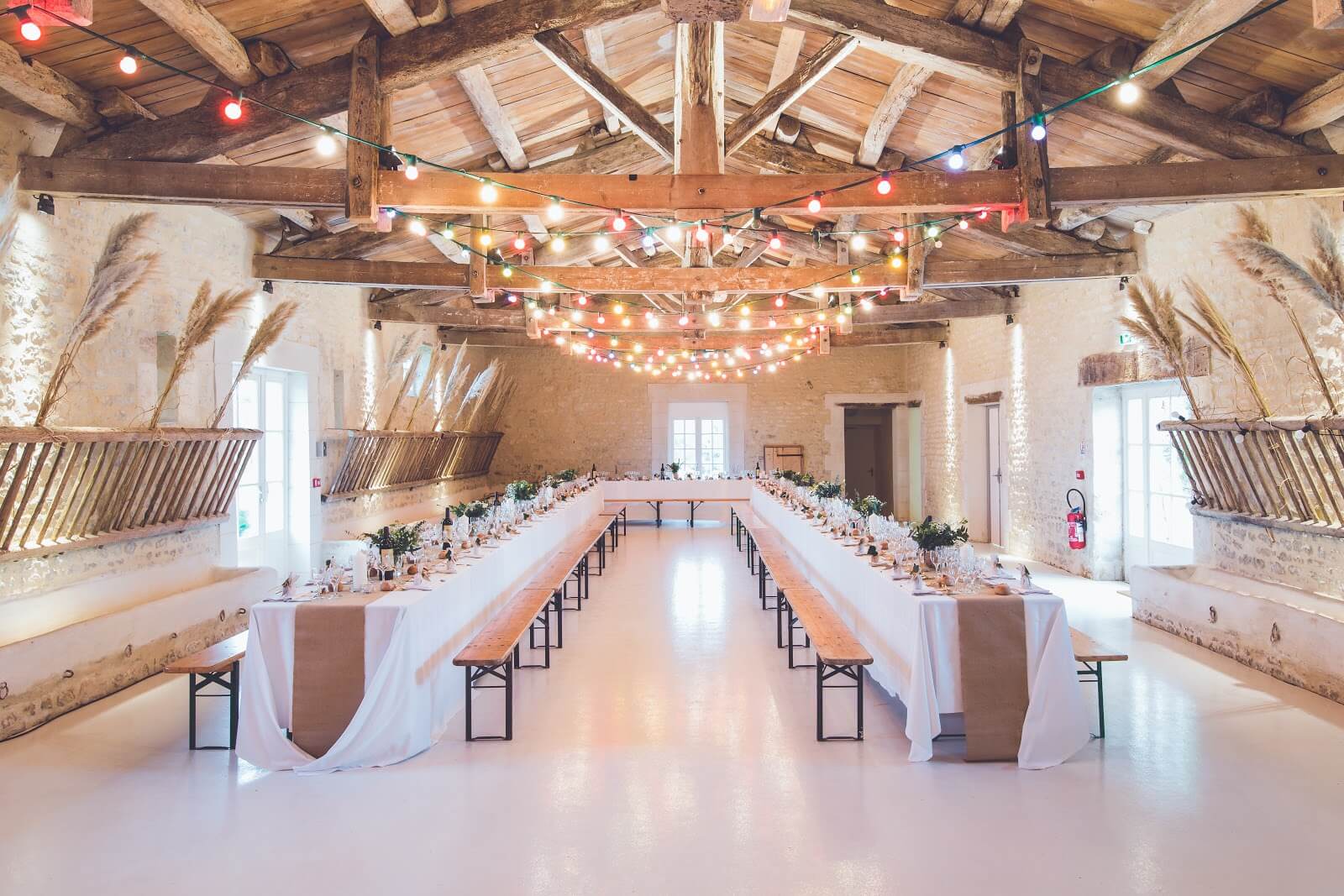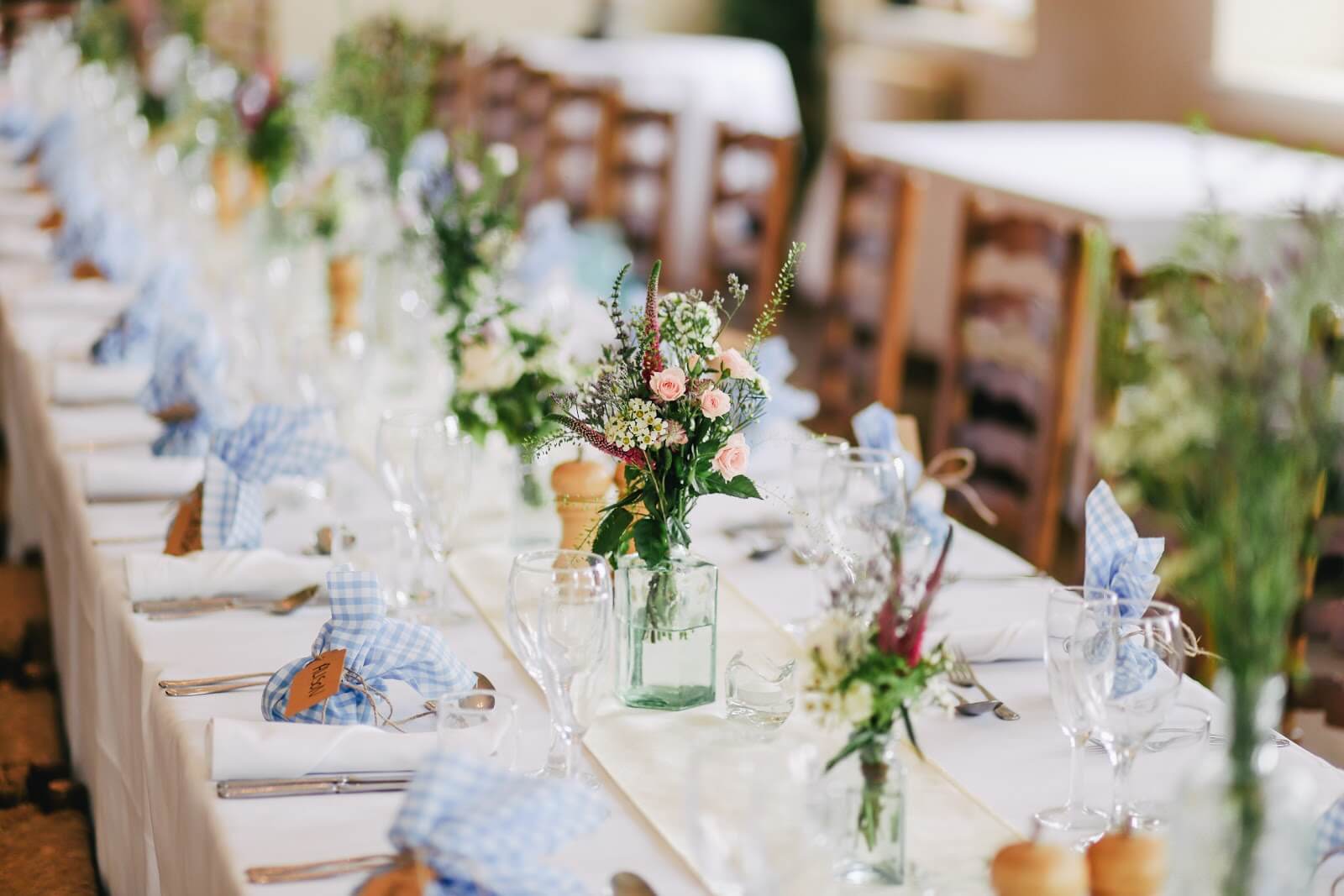Weddings are a once-in-a-lifetime event for brides and grooms.
The wedding day must be as perfect as the fairytale the bride has dreamed up.
But fairytale weddings don’t just happen on a whim.
They’re well thought-out and call for a tremendous amount of planning and execution.
That’s why many turn to professional wedding planners to handle all of the details and headaches that come along with weddings.
In this article, we’ll show you how to become a wedding planner.
We’ll walk through everything you need to know before making this your full-time job.
What Is a Wedding Planner?
Wedding planners handle all of the logistics behind a wedding, from your venue to your wedding hashtag, to ensure the event goes off without a hitch.
It’s not very common for engaged couples to bear the responsibility of planning their wedding all on their own.
At some point, people realize the immense amount of planning, work, and execution that goes into pulling off a wedding.
Successful wedding planners coordinate with photographers, florists, wedding venues, churches, banquet halls, and more to organize weddings custom-made for the couple.
By the time the bride walks down the aisle, everything is perfectly in place all thanks to the wedding coordinator.
It’s relatively easy to become a wedding planner.
But the question is, “Is wedding planning the right fit for you?”
Is Wedding Planning Right for You?

Let’s be clear, wedding planning isn’t right for everyone.
If you’re an organized planner, excellent multitasker, and work well under an immense amount of pressure, then wedding planning might be a good choice for you.
There’s plenty of planning and task juggling that goes into a successful wedding.
You’ll be keeping track of reservations, vendor coordination, and event scheduling.
It will be absolutely crucial to stay organized and multitask as the wedding date nears.
You should be able to keep calm under a great deal of pressure and stress.
Weddings have a funny way of having chaos surrounding the big day because of all the hundreds of details and dozens of people involved.
You’ll need to think on your feet and problem solve in whatever last-minute situation is thrown your way.
It will be your job to alleviate and handle this chaos while also making sure the bride and groom are comfortable and trust your services.
Since it’s their day, you should be able to be understanding and empathetic to any concerns and requests they make.
Lastly, you should expect to give up your nights and weekends, especially during peak wedding season.
Your summer weekends away at the beach or out on the town will be less frequent.
This job will require hard work and long hours, especially during the spring and summer months.
Now let’s see how much wedding planners make.
How Much Do Wedding Planners Make?
Wedding planner salaries largely depend on how many weddings you book per year, what types of weddings you plan, and how high you set your rates.
According to Glassdoor.com, wedding planners make just under $51,000 per year.
If you have every weekend booked throughout the year, your yearly earnings will be higher.
When you’re starting off, it will take time to build up a steady stream of clients.
You should expect to be making very little before you secure many clients.
There are two ways you can get paid as a wedding planner — service fees and commissions.
Some wedding planners decide to charge premium service fees, which is a charge for your services.
On the other hand, you’ll receive commissions when you book services through vendors you have partnerships with.
For example, if you have a partnership with a florist, they may give you a 10% commission on every purchase you make through them.
If you book high-end weddings that cost a lot of money, you can charge premium rates.
You’ll also receive hefty commissions from vendors you book through.
Do you think you have what it takes?
Let’s show you how to become a wedding planner.
How to Become a Wedding Planner in 5 Steps

Starting your own wedding planning business will require you to obtain experience and training, get certified, pick a wedding niche, and network with other wedding professionals.
At that point, you can start finding clients who will pay you to plan their wedding.
1. Seek Training
The first step you can take to becoming a wedding planner is getting some experience and training.
This will help you get your feet wet and aid in your decision of whether or not you want to pursue this full-time.
You can get hands-on training by working with other wedding planners.
You can reach out to wedding planners and ask if you can be their day-of assistant, either as a side job or as a volunteer.
This will give you a behind-the-scenes look at everything that goes into a wedding.
Experience can also be garnered through different types of event planning — it doesn’t need to be a wedding.
Event planners help organize banquets, parties, or graduation parties.
These events are similar to weddings and will give you some comparable experience.
This training and experience can shed light on responsibilities like contract negotiations, wedding etiquette, and vendor relations.
After you have some experience and feel like wedding planning is right for you, you can look into getting certified.
2. Get Certified
While certifications aren’t mandatory to become a wedding planner, they will help you stand out from your competitors.
It will also show prospective clients that you’re the real deal and they can trust you.
One certification you can pursue is through the American Association of Certified Wedding Planners.
You can take a wedding planner certification course online or in-person through this organization.
To make yourself look more legitimate, you can also register your business with wedding publications like The Knot.
This will get your business in front of the eyes of thousands of customers in your area who may be looking for a wedding planner.
You’ll also need to register your business with your state, obtain business insurance, and get a business license to strengthen your credibility.
These will give you the authority to operate your business in your local area.
3. Choose a Wedding Niche
Choosing a wedding niche will set you apart from your competitors and carve out your little space in the market.
As the saying goes, if you try to do everything, you end up doing nothing.
There are plenty of niches you can focus one.
One popular niche is a destination wedding planner.
Another is a same-sex marriage wedding planner.
You could even get hyper-specific and do weddings with a quick turnaround, barn weddings, or downtown rooftop weddings.
You should pick a niche and stick with it.
However, you shouldn’t get too specific and limit the number of clients you take in.
You can be flexible and find a niche that will bring in your desired number of clients.
4. Network With Other Professionals
Successful wedding planners have a wide-reaching network they can leverage to pull off spectacular weddings.
This will help find reliable vendors you can work with and it will also provide a steady stream of referral clients.
It will be important to have go-to partner vendors of all sorts.
This could include photographers, florists, DJs, caterers, bakeries, salons, makeup artists, bakeries — the list goes on.
The wedding space is one that operates on the idea of “You scratch my back and I’ll scratch yours.”
If you have a client who needs a photographer, you can refer this client to your partner photographer who will get paid for this specific job.
Likewise, when that very same photographer comes across a couple who plans on getting married, they can refer the couple to your wedding planning service.
It’s a win-win for both parties.
5. Find Clients
Client referrals will be a large chunk of your new customers.
You can get referrals from fellow wedding vendors, previously wed couples, or wedding attendees.
The better you do your job, the more referrals you’ll receive.
You should also have an active online presence.
This includes having a website along with social media channels bringing in new business.
Since weddings are a very visual experience, they’re made to be shared on social platforms like Instagram.
There are also local wedding conventions you can attend to get your name out there.
Not only can you find potential clients browsing vendors, but you can also network with other vendors.
After you’ve drummed up business, the only thing left to do is to follow through on your promises and plan weddings that brides and grooms dream about.
But before lifting a finger, you should have a statement of work contract drawn up so you and your clients are on the same page with the exact details of your services.
Begin Your Wedding Planning Career
Planning weddings can be an incredibly fun and rewarding way to make a living.
Not only does it have the potential to pay a decent amount of money, but you also get to be part of your client’s big day.
This will be a moment they’ll remember forever and you had a hand in making it all happen.
Now that you know how to become a wedding planner, the only thing left to do is take the first step.
Start networking with wedding planners today and get some experience under your belt.
Your first client is right around the corner.









